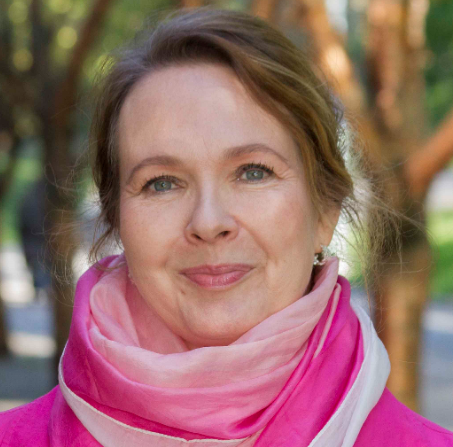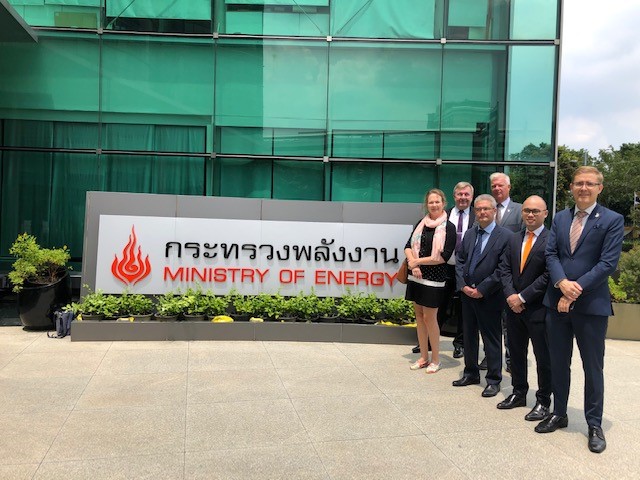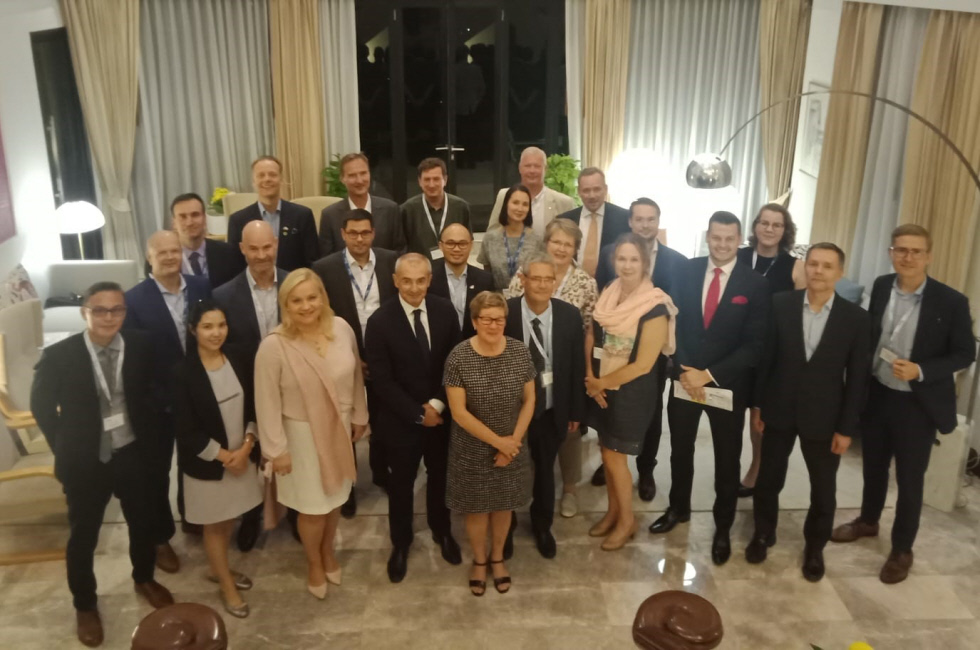The energy sector is going through a huge restructuring at the moment. Transformation is now taking hold worldwide where global demand for smart energy solutions is increasing. Finland is here a player.

Finland possesses significant expertise in the fields of renewable energy technology, smart networks, power electronics and automation. The energy sector already contributes to a major share of the Finnish exports and it is predicted to keep growing.
The Finnish ‘Smart Energy Finland Program’ brings together the services for technical development and exports – internationalisation of companies. This also entails various collaborations and partnerships between companies, for example in Asean countries and Finland.
Some companies joined Helena Sarén, who is the Head of the programme, on a Finnish business delegation to Thailand in 2019.
Comenting on the transformation Helena says: “The restructuring is historical – probably as big as the invention of the steam machine, because new players are coming to market; entirely new businesses and new business models emerge.”
Analytics has predicted that the global smart energy will grow by 15 % (CAGR) during 2016–2020. The annual global energy investments will total approximately 2 trillion dollars with a major focus on giving up fossil fuels and increasing renewable energy production. This means an increased need of grid flexibility and energy storage. The energy market will experience further changes with the electrification of traffic.
“Within the Smart Energy Finland Program we’re running and orchestrating a group with around thirty energy companies, jointly looking into what other business potential paths that exist. And we’re trying to solve together how straw fibre could be used for production of fuel; so it’s very interesting, from a re-structuring of business point of view, and seeing new kinds of opportunities,” thinks Helena.
The energy sector of the future will offer completely new business opportunities in particular for companies in the software and digital industries in the fields of data processing, data security and more. Energy consumption will be managed more efficiently with the help of learning and smart systems.
All businesses from Finland are recommended to reassess their products and values from the perspective of identifying solutions that generate added value by extending lifecycles and promoting the circulation of materials.

Smart energy connects to circular economy
Also in focus for Finland are the circular and bioeconomy concepts, where Helena believes that smart energy connects strongly to these.
“Energy is at the centre of climate change mitigation. It’s about everyday life of people; starting from transportation and including industrial production. Energy is an enabler; it’s the backbone of the economy and the smart infrastructure of tomorrow,” she begins.
“I think Circular Economy is the ultimate goal but energy is the first priority when many of the countries, especially the emerging ones, take baby steps when heading in this direction, There’s definitely a need for energy and then the countries try to solve that challenge.”
“Within that process it is also very important that the countries are not going for partial optimisation but take a holistic approach; from the perspective of what kind of raw materials, including different kinds of bio-based raw materials (forestry, agriculture and so forth), or about the industrial side and waste streams. So they need to understand the big picture behind it all, and see what can be used for energy purposes and circularity purposes.”
“So, in many ways energy is the first step which then guarantees development of the society. Then, countries, regions and cities can gradually move up the ladder in the development towards CE.”
Being investment-intensive sectors the financing is also very essential for the energy sector and CE. “The lead time of such projects is long but definitely the investments are needed and therefore it’s so crucial that the countries make the investments themselves when they want to climb up in the development. Quite often this also means that they have to change legislation in such a way that these investments can be supported.”
“We are also going further towards Circular Economy with the electric vehicles coming heavily onto the market, of course affecting the renewable side of the grid. But at the moment we are mostly using lithium batteries. Finland has been given the leading role within the EU in lithium-iron batteries recycling research, development and innovation.”
Finland has a business platform that will attract international companies in the battery sector and take the position of a leading technology and service provider in the global market.
“At the moment, the challenge is that a lot is not being recycled. With millions of EVs coming in to the picture what to do with the batteries; who will take them?” says Helena. “That is something we need to solve on a global level.”
Finland has some 30 companies looking at ways to solve the sustainability issues and tracking the raw materials; starting already at the mining process stage all the way to the end of the lifespan, through the second life and then the final disposal.
Building larger packages of solutions from several companies that can solve all challenges and problems at once for clients is also in focus for Finland.

Thailand has advanced plans
China, India, Indonesia, Thailand and Vietnam are among the focus target markets within Asia for Finland. These are originally based on input from the companies (altogether around 100 companies currently focusing on Asia) and from Business Finland’s own view on development of the markets; where the opportunities are and how they match what Finland has to offer.
“As the Lead I have a global view and pull the strings together but I definitely rely on and the respect a lot the expertise of my colleagues from the target areas,” she points out.
The support to companies includes having a continuous cooperation and discussing with them, for instance on what the challenges are, what kind of growth they are looking for. Business Finland supports them in their market selection and then in real activities in the markets.
“Thailand at the moment has very advanced plans relating to their renewable energy sector, the renewing of their whole infrastructure, electric vehicles, bioenergy, and definitely the challenges with waste-to-energy and waste-to-value topics. So, I think this is a good moment for companies to at least take a look at Thailand,” she comments on the visited country.
“We organised B2B meetings for the companies, having precisely identified the target companies and then set up meetings with those ones. It is essential–especially when we are located so far from the markets–to have a local partner who knows how this market operates, have the local contacts and so forth. The Finnish companies have to see and feel where the market is at the moment because only based on that experience they can know if this market is good for them or not. And then they can go home and reflect about the findings and see whether these are good for them, whether they match their business model or not and so forth,”
Helena adds that most of the Finnish companies have references in Southeast Asia already, many also with presence in Thailand.
